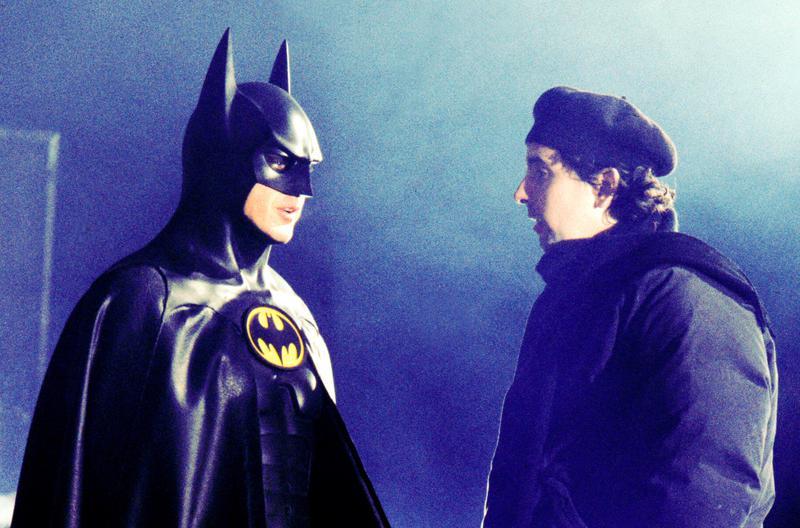
It has been revealed that Tim Burton (the director behind 1989's Batman) provided one big idea that led to the MCU's success.
To say Marvel Studios' interconnected universe of movies and TV shows has been a success would be an incredible understatement.
The MCU changed Hollywood as a whole, becoming the biggest franchise in movie history having grossed $29.6 billion at the box office over the last 15 years.
Now, that success can be credited to a lot of people, with the likes of Marvel Studios President Kevin Feige taking their experiences from years in Hollywood and translating them into the interwoven narrative tapestry that is the MCU.
Tim Burton Credited for the MCU's Success

Warner Bros. executive producer Michael Uslan said that the MCU can credit some of its success to renowned director Tim Burton.
In an interview on Traversing the Stars, Uslan, a former DC Comics writer and executive producer on every theatrically released Batman film, revealed that Burton's vision while working on 1989's Batman provided the MCU with - what he called - "the big idea" that led to its success:
“I was fortunate enough to be in projects involved with geniuses. On that first movie, it’s Tim Burton, because he had the vision, it’s Anton Furst, who created Gotham City, the Batmobile, the whole look of the picture, and Danny Elfman. And the influence they have, I claim is, to this very opening weekend, every genre picture, you can hear the influence of Danny Elfman’s notes, Anton’s design work, and Tim’s vision. And let me just add one thing because, this is really important. It was Tim Burton who came up with what I always refer to as ‘the big idea.’"
Uslan elaborated, remarking that "the big idea" was not focusing on the Dark Knight in the film, as Burton told him, "This movie cannot be about Batman," but the man under the mask, Burce Wayne:
"This is the game changer. This is the big idea that not only made Batman a success, but open the door to the Marvel Cinematic Universe. He said to me, ‘Michael, if we’re going to do the first ever dark and serious comic book superhero movie this movie cannot be about Batman.’ Okay. That was my the most apoplectic moment of my entire existence. And then he explained. He said, ’This movie must be about Bruce Wayne."
He recalled the Batman director talking about showing a hero who's "so driven, so obsessed" that "audiences around the world who have never read a comic book will go, ’Oh yeah, I believe that:'"
"We have to show a Bruce Wayne, who’s so driven, so obsessed to the point of being psychotic that audiences around the world who have never read a comic book will go, ’Oh yeah, I believe that that’s a guy who would get dressed up like a bat, and go out, and fight a guy who looks like the Joker. And his corollary to it was that Gotham City had to be the third most important character. Literally from the opening frames, we had to get audiences to believe in Gotham City in order to get them then to believe in a Batman and a Joker."
It was this shifting of focus not just on the hero, but the person first that has made the MCU so successful, with movies like Iron Man being Tony Stark stories first and foremost:
"And he was absolutely right. Look at the Marvel movies. Stan [Lee] admitted this to me and I’m sure Kevin Feige would agree: the 'Iron Man' movies, I love them, they should be called Tony Stark. The 'Spider-Man' movie should really be called Peter Parker. So it’s an idea that has worked and brought comic books into a contemporary global world.”
Did Tim Burton's Formula Work in the MCU?
While some may discount Michael Uslan's points here simply because he is from the 'other side' of the comic book fandom line he does make a fair point.
Tim Burton's Batman was a watershed moment for the genre, changing what a comic book movie could be forever. Without Batman, the MCU probably doesn't exist in the way it does today.
And this "big idea" that Uslan brings up is largely part of the reason for that.
He is right. Since the beginning of comic books as a medium, the best stories bring the secret identity to the forefront. The reason heroes like Spider-Man are so popular is because his adventures usually blur the line between Peter Parker and Spider-Man.
From day one, that has been something Marvel Studios has injected into all of their most successful projects.
The Spider-Man trilogy, Iron Man, Black Panther, and Shang-Chi and the Legend of Ten Rings are just a few examples of these superhero stories that put the human before the super-human to get maximum audience buy-in.
So maybe Tim Burton did not solely create the MCU, his mentality working on films like Batman is just one of the ingredients that went into Marvel Studios' super-powered stew of success.











